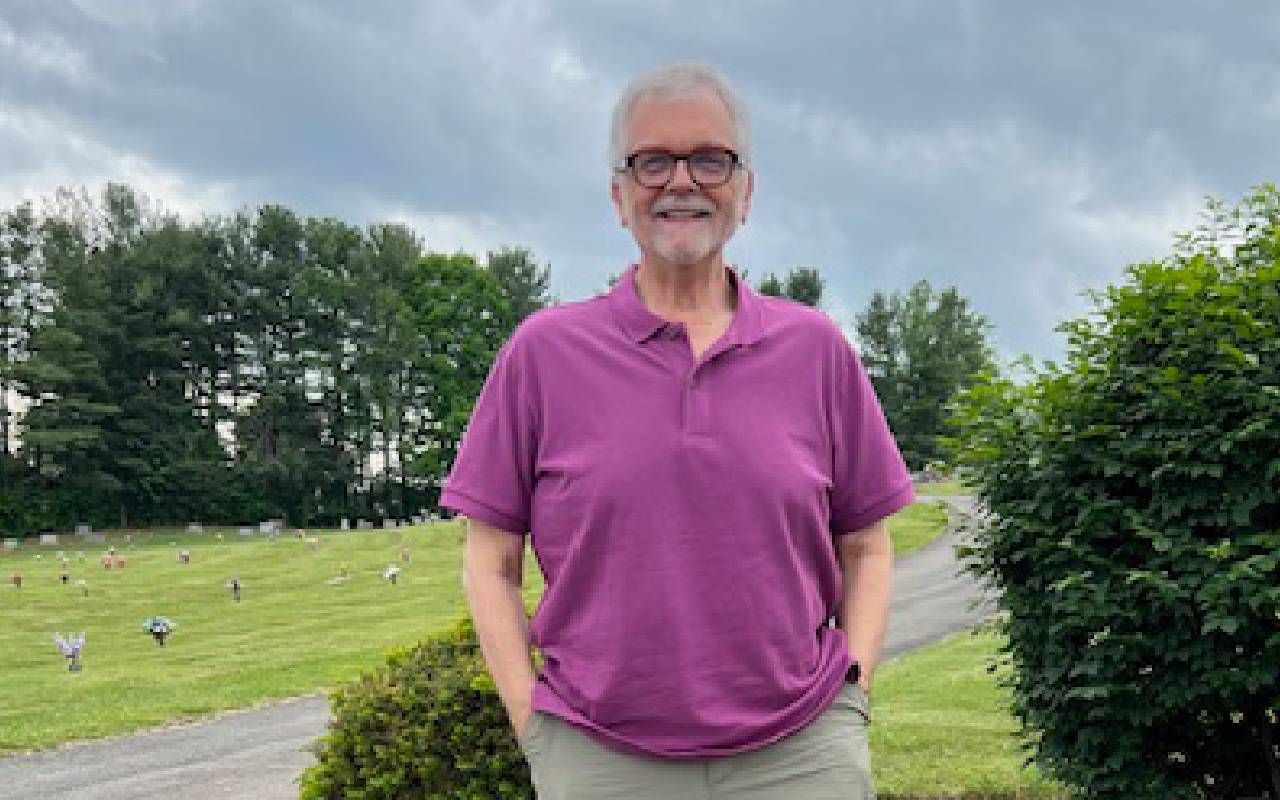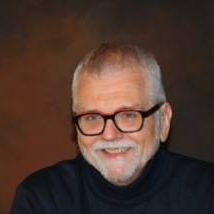Coming Back to Life: Finding Vitality and New Meaning
Finding a sense of meaning in the presence of my cancer continues to help me with resilience, persistence and tenacity
Editor’s note: In our lifetime, one in eight men will be confronted with the challenges presented by prostate cancer. This is the fifth story in a series of six articles where Jackson Rainer discusses the implications of prostate cancer diagnosis, treatment and the impact on quality of life.
Prostate cancer is treated in stages, based on research protocols and ongoing medical evaluations of the cancer's viability and movement through the body. Despite my professional training as a psychologist, I found myself naïve to the physical demands of treatment and unprepared for the connection of mind and spirit to my physical body.
At nodal intersections early in the process of treatment, I came to salient insights affirming and underscoring the meaning of life as a cancer patient and survivor.

As I entered into the unfamiliar treatment world, my friends Deirdre and Dean invoked the spirit of Saint Peregrine, the patron of cancer patients and those with life-threatening illnesses. His legacy is one of a lesson of trust in the Divine, that during suffering, there is wisdom found by going to the place one calls holy and opening to the possibility of spiritual healing and peace.
Cancer was in me and of me, and I was frightened, alarmed and lonely.
Another friend, Justin, reminded me of a familiar Psalm, "This is the day that we have been given. Let us rejoice and be glad in it." About the same time, I rediscovered the philosophy and writings of the author Thomas Moore, who speaks to the creation of a more soulful and spiritual world.
My physical health was deliberately compromised for all the right medical treatment trajectories. My metabolism shifted as a result of androgen deprivation, and I began daily visits to a space-age proton radiation center.
I thought carefully of the path I was taking with the illness. I am like most men. Those of us of similar age and stage of life tend to rely on our professional identities to define and guide our personal lives — what we do is who we are.
As a psychologist with psychoanalytic training, I was taught to maintain an intentionally neutral stance, revealing very little of myself so that a space might be created where patients work on their unconscious without interference from external factors. This professional path seemed to be a reasonable way to privately keep the impact of the disease at arm's length, particularly as I was dealing with a diagnosis as personal as prostate cancer.
It didn't work. I quickly realized that I could not "hide out" without feeling diminished. After all, I was the patient, not the doctor. Cancer was in me and of me, and I was frightened, alarmed and lonely.
The readings of Moore in his book, "Ageless Soul," provided direction and guidance. He wrote:
"There is an old saying in philosophy — to be is to be perceived. To have your being, your life and vitality, you need to be seen. When you are seen for exactly who you are, you have your being. Your being seen pushes you forward into existence. You feel your life, your presence. When you hide out of shame, you are not present, not even to yourself. We need to be the object of a gaze. In this process of becoming a real person we need others. It's a community process. And we need the community to see us for who we are, in all our splendor and imperfection."
I am receiving the best medical care available, provided by superb researchers and clinicians. I have been told on several occasions that their job is exclusively to rid my body of cancer. I am a thoughtful and compliant patient, so I agreed to and embraced their prescriptions of androgen deprivation and radiation.
While offered reassurance that the cancer was diagnosed "in time" for a good outcome, I became a close observer of the choices of life and death. Cancer, I thought, would take me into a new experiment in living. It would require more than is my custom that I become more transparent with others.
Vitality and Belonging
Vitality is the capacity to live, grow and develop. It is the characteristic that distinguishes living from non-living things. The experience of vitality is a basic psychological drive and a component to the will to live. While my physicians were attending to the biological processes of killing cancer, I was realizing that my life could not purely be explained by chemical, physical and medical mechanisms alone, and that a good life demanded attention to the qualities defined by the existential and spiritual nature of who I am.
For this period of time, I organize most of my days around the solitary nature of the physical, psychological and spiritual demands of cancer in my life.
A significant part of my own process is defined by belonging. I am a well-loved solo ager, living independently as a widower in two communities, one urban and the other rural. It continues to be figural in my life that I actively seek and cultivate a sense of membership in the larger body of the world.
For this period of time, I organize most of my days around the solitary nature of the physical, psychological and spiritual demands of cancer in my life. Moving through the day with fatigue that sleep does not restore and living without androgens needed to maintain psychological strength, vigor and resilience proves to be an existential challenge of the first order to my integrity.
My wife died nearly a decade ago after a long history of illness. I shake my head now at how many hard right turns I've taken from then till now that define this contemporary season of life. I am fortunate to have intimates and good friends claiming our relationship as more than transactional social connections. We feel tethered in authentic, empathic, deeply felt ways.
What the author Brian Chalker said is true: "People always come into your life for a reason." Lifetime relationships with my 'peeps' are teaching me the necessity of solid emotional foundations for connection. The people I love and love me back reassure ourselves that kinship is mutual, magnetic and transparent. We see each other for who we are, in all our glory and love anyway.
During my journey along this path of physical dis-ease, my intimates help to integrate all that I learn about prostate cancer, its medical roadmap and my spiritual immersion beyond the physical and into other relevant areas of life.
As Chalker says, "Love is blind, but friendship is clairvoyant." During the course of discovery, prescription, treatment and recovery, my friends are with me. They provide constructive consideration and give their opinions freely and without judgment.
By keeping my eye on the prize, I tolerate changes in my body and find new and creative solutions to burdensome hardships.
One afternoon as I was considering treatment directions, my friend, Michael, who knows of my tendency to be rebellious, lovingly offered advice. He told me, "Jack, just let these providers do what they do best. Don't buck them. You've chosen the right folks. They know what they are doing." Bless him. My friends are trustworthy, supportive and we are unguarded with each other. They are, as the writer Monica Pearson quoted her mother, saying "Good friends are like Jesus, they never leave you nor forsake you."
Finding Meaning
The philosopher Friedrich Nietzsche said, "He who has a why to live for can bear almost any how." Finding a sense of meaning in the presence of cancer continues to help me with resilience, persistence and tenacity. By keeping my eye on the prize, I tolerate changes in my body and find new and creative solutions to burdensome hardships. The attribution of meaning is healing and protective. I know what is at stake.
In this next iteration of life, I must incorporate cancer as a truth in my narrative. As much as I thought I would be able to see cancer as a discrete event, I continue to know that it informs my process, and has significance and gravitas in the quality and general satisfaction of daily living. The better able I am to understand how cancer fits in my life, the better able I can navigate stress and reduce levels of anxiety and worry, particularly in my aloneness.
In psychotherapy work, my clients and I discuss meaning as they seek to understand their structures and interactions with the world based on personal histories and experiences. Clients look for benchmarks to help define being "better." I have come to appreciate the definition of "better" as a good, satisfying fit, evolving over the course of a lifetime, providing meaning to change.
I hold three practical strategies that may be employed for the attribution of meaning to challenging life circumstances.
Three Good Practices
The first method seeks connections between productive activity and how an outcome-related strategy matters individually and in the world. Contemporary western society is consumed with busyness. One of the biggest complaints about living in modern society is that of being overscheduled, overcommitted and overextended. In many ways, running from place to place provides a distorted existential reassurance for meaning and functions as a hedge against emptiness.
The greatest psychological tonic for a bad mood is a dose of altruism, the principle and practice of unselfish concern for or devotion to the welfare of others. Finding activities that hold energy and passion toward others, regardless of physical capacity (how much energy I muster and whether I feel well or not) provides perspective.
With the experience of cancer, I realize that cynicism is a crusty layer that keeps me arrogantly disconnected from the world.
The second strategy for attribution of meaning is through gratitude. The writer Galen Guengerich has written a lovely book entitled "The Way of Gratitude: A New Spirituality for Today." He defines meaning through transcendence and says this spiritual path is not limited to experiences of the Divine. He writes that meaning can be reached through gratitude's ability to take us beyond ourselves, creating connection with others and the universe.
In earlier periods of my life, I identified myself as a cynic. With the experience of cancer, I realize that cynicism is a crusty layer that keeps me arrogantly disconnected from the world. Discovering and practicing the way of gratitude makes me happier, healthier and provides a renewed sense of belonging. This quote of Dietrich Bonhoeffer is taped to my computer and is a part of my daily meditation: "In ordinary life we hardly realize that we receive a great deal more than we give, and that it is only with gratitude that life becomes rich."
Finally, a third strategy for finding meaning is unearthed by placing experience in context and perspective. I believe we each have a unique and nuanced narrative, a storied nature of how we live our lives. Personally, I walk through the world disbelieving in coincidence, moving instead on the truth that human activity and experience are filled with definitions, meanings and stories — some obvious and concrete, many unconscious and beyond sight — rather than lawful formulations.
Do I subscribe to the antiquated notion that I somehow manifest prostate cancer to teach me a life lesson? Did I "need" cancer? No, not at all. Are there mind, body and spirit lessons that can be discerned through illness? Unequivocally, yes. As an experience, prostate cancer has forced me to examine my life, face mortality, and sort out my values and beliefs.

Read More

